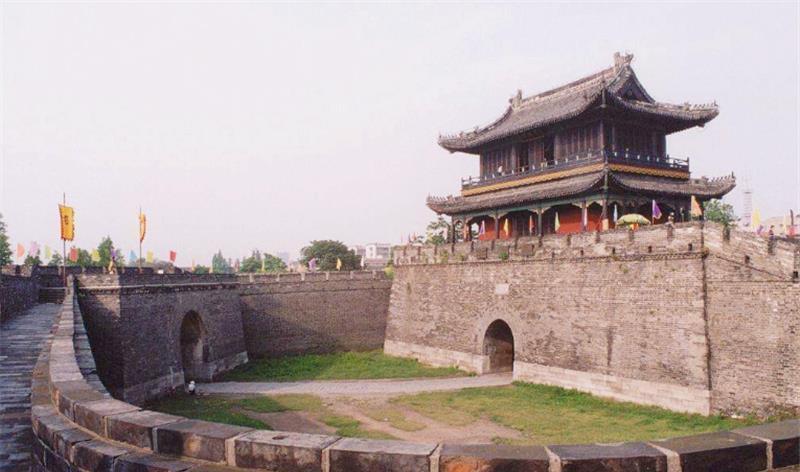China has a vast land area of 9.6 million square kilometers, and in the vast land of Shenzhou, each place has its own customs and habits, which is called "ten miles of different sounds, a hundred miles of different customs."
In many places, even in two villages miles apart, there are great differences in language habits. This, in the eyes of many foreigners, is really amazing.

In the long course of China's long history, not only has it created a splendid culture, but with the great migration of the population, these splendid cultures have been brought to all parts of the world, and our close neighbors have been particularly deeply influenced by the Culture of the Central Plains. In these countries, the shadow of Chinese culture can be seen everywhere at all times.
Our immediate neighbor, South Korea, is a living example of this.
What is even more amazing is that in the Korean history and culture that is deeply influenced by the culture of the Central Plains, there is such a feature, which is even more amazing. That is, the flag of South Korea, the place name, and even the capital can see a lot of things in this province. So why do South Koreans have a soft spot for this province in China?
This province is China's Hubei Province, one of the largest birthplaces of ancient Chu culture.
Since during the Spring and Autumn Period and the Warring States Period in China, the State of Chu was the largest princely state in China at that time, and at its peak the territory of the State of Chu included the southwest of present-day Henan Province and most of Hubei Province, Hunan Province, Anhui Province, Sichuan Province, Yunnan Province, and Guangdong Province, which caused most of the ancient Chinese to be Chu people.
People often say that "the death of Qin will be Chu", not only refers to the strong spirit of the Chu people, not afraid of violent Qin, but more to show that there are many people in the Chu country, and it is the most powerful existence.
The resulting "Chu culture" has become the most important part of Chinese spiritual culture, especially after Liu Bang established the Han Dynasty, it was not completely separated from the previous Chu culture, but on the basis of inheriting the rule of the Qin Dynasty, combining chu culture and integrating the culture of other regions, building the most splendid Han culture in ancient Chinese history.
Even today, such Han culture has a very strong influence in the world.
Our close neighbor Korea is a big fan of Han culture. People who have been to Korea or know korean history know that the shadow of Chu culture can be found in many parts of Korea.
In the case of place names, before the abolition of Chinese characters, many place names in South Korea were related to Hubei Province, the core area of Chu culture. On the world map, we can see that there are two rivers with the same name, and this river is the Han River.
The first is the Han River in China, the largest tributary of the Yangtze River, and the main part is in Hubei Province.
The second is the Han River in central Korea, a major river on the Korean Peninsula and the fourth longest river on the Korean Peninsula, after the Yalu, Tumen and Nakdong rivers.
Because the names are the same, in order to distinguish them, the South Korean government also held a special press conference to explain that it wants to change south Korea's "Han River" to "Han River", but unfortunately, such a statement cannot be recognized by the world.
In addition to rivers like the Han River, there are many things in South Korea that are related to "Han culture" and "Chu culture", such as Seoul, the capital of South Korea, which has been called "Seoul" in history, before taking the name "Seoul", this place has always been called "Hanyang", speaking of "Hanyang", and it coincides with Hanyang in the three towns of Wuhan, Hubei.
This is not just a coincidence, but the korean ancestors' worship of Chu culture and Han culture. Although the South Korean government changed Seoul to Seoul in 2005 and strictly prohibited the appearance of any Chinese characters in Seoul, such a number of ancestors will inevitably bring many losses and harms.
Outside of Seoul, there are many place names in South Korea that are identical to those in Hubei Province.
Is it a coincidence that China has Wuhan and HanJiang, and South Korea has Seoul and Hanjiang? Let's take a look at the three place names of Xiangyang, Jiangling and Danyang. There is a Jiangling County in Hubei Province, a Jiangling City in South Korea, a Xiangyang City in Hubei Province, a Xiangyang County in South Korea; a place called Danyang in Hubei Province, and a Danyang County in South Korea... Similar situations abound in South Korea.
The reason why many cultures and histories of South Korea are inextricably linked to Hubei Province is because of the strong influence of Chu and Han culture in the world, which has led to the ancestors of Korea who have always been obsessed with Chu culture and Han culture, and have penetrated deep into the bone marrow. In recent years, koreans have successfully applied for the Dragon Boat Festival, so why is it not this kind of psychological withdrawal?
References: Chronicles of the Nations, Chu Culture, etc